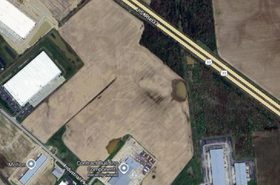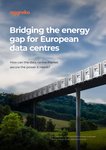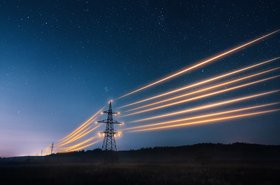Data centers cannot solely rely on green energy to power their operations and must look at other forms of energy production to support the skyrocketing power demand of artificial intelligence, the chief executive of Siemens's smart infrastructure division, Matthias Rebellius, said in an interview with the WSJ.
The growth of AI has resulted in significant increases in energy demand for data center operators, which, according to Rebellius, has raised the question of where the energy to power them will come from.
Despite major hyperscalers increasingly signing long-term power procurement agreements for renewable energy, Rebellius contended that this isn't a solution to the sector's power needs.
"The world needs a new plan," Rebellius said. "It's just a question of speed and how much can be done at the same time."
In 2024, Hyperscalers turned to nuclear power as a low-carbon alternative to renewable energy. AWS and Microsoft secured offtake agreements from large-scale nuclear plants. In addition, Equinix, AWS, and Google signed agreements with small modular reactor (SMR) companies to power their operations in the 2030s.
However, SMR delivery dates range from the mid-2030s to the 2040s, and traditional nuclear power is not widely available, limiting its effectiveness in alleviating the sector's rising power demands in the immediate future.
For Rebellius, the sudden demand increase is bound to experience a normalization after the current phase of rapid growth driven by AI.
"We will not see 50 percent growth every year—not our company, not others—but we will continue to see mid-double-digit growth in the data-center range, which is more than double the normal infrastructure market and four times [gross domestic product]," Rebellius said.
As a result, to meet power demands, US utilities have broadly adopted an "all of the above" approach to power production. Several utilities have announced that they will delay the closure, or restart fossil fuel power plants to meet the unprecedented demand.
In November, Clair Moeller, president and chief operating officer of US grid operator Midcontinent Independent System Operator, argued that data centers could rely on gas-fired generation in the short term to meet the sky-high demand, acting as a bridging mechanism to low carbon sources.
In addition, a report from S&P Global found that demand for natural gas to support data centers could reach three to six billion cubic feet per day as the industry struggles to find power for an AI buildout.







